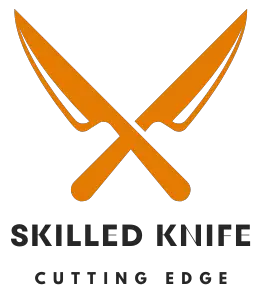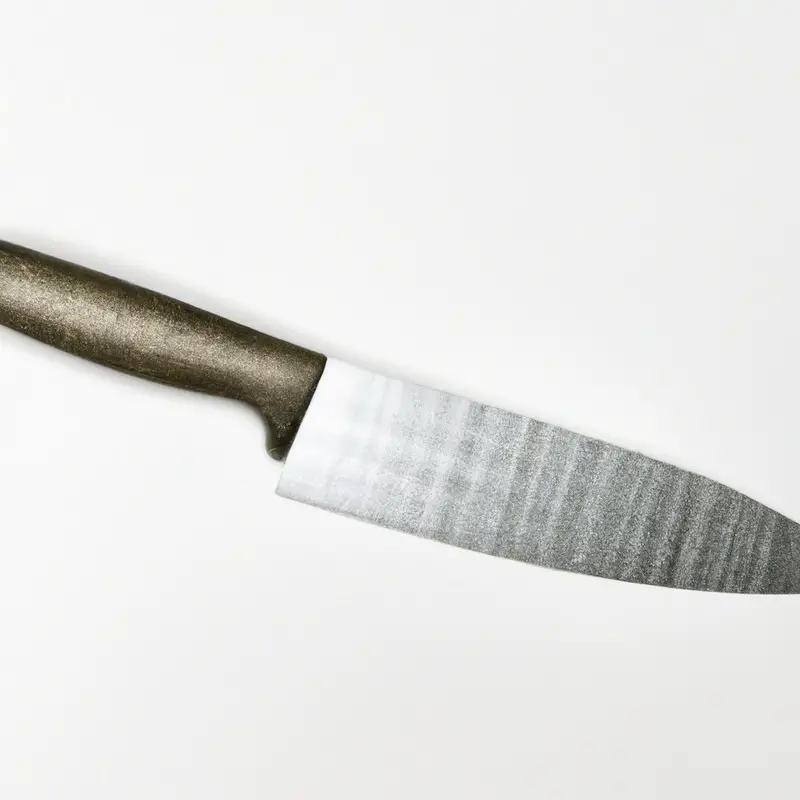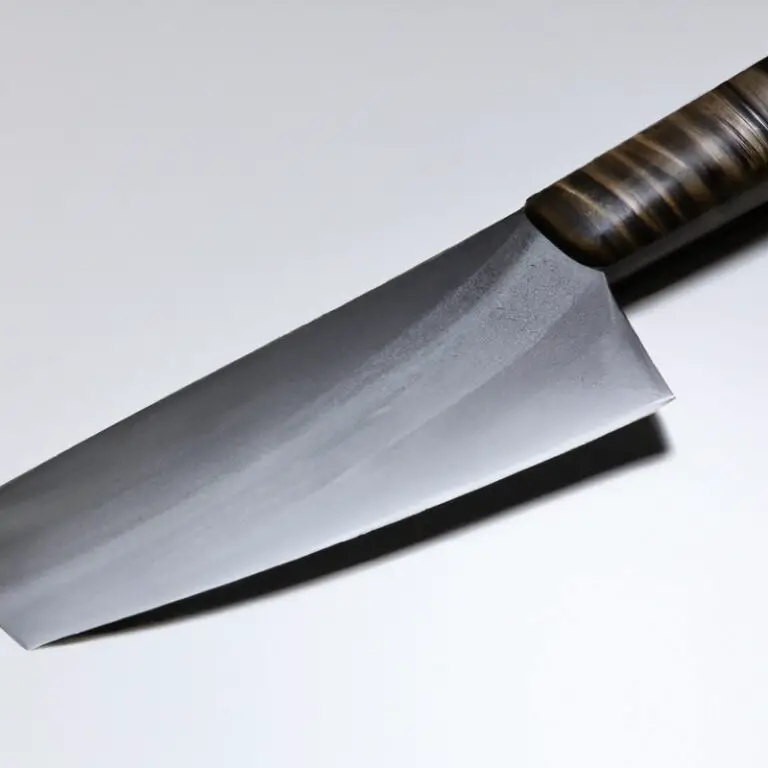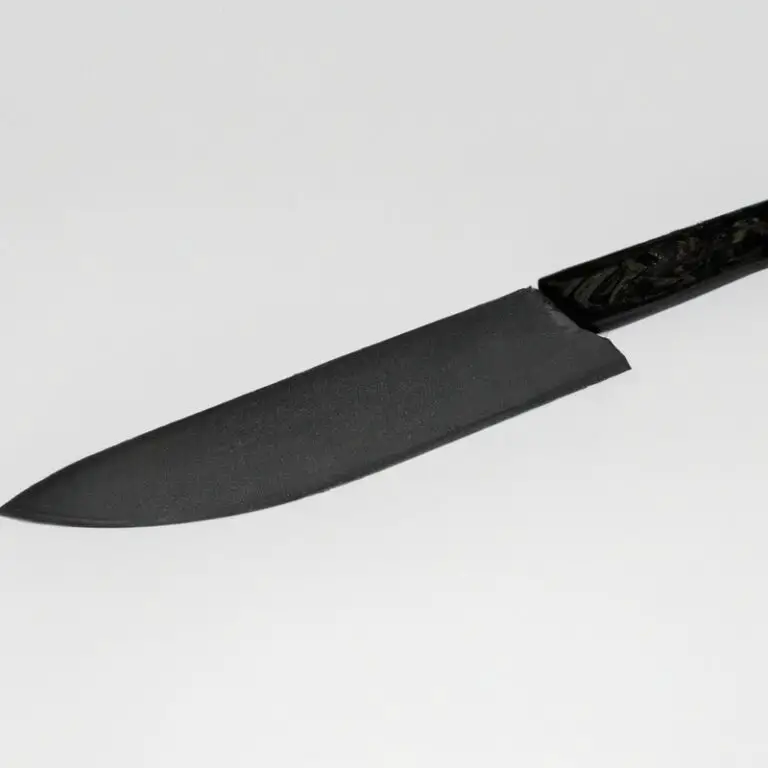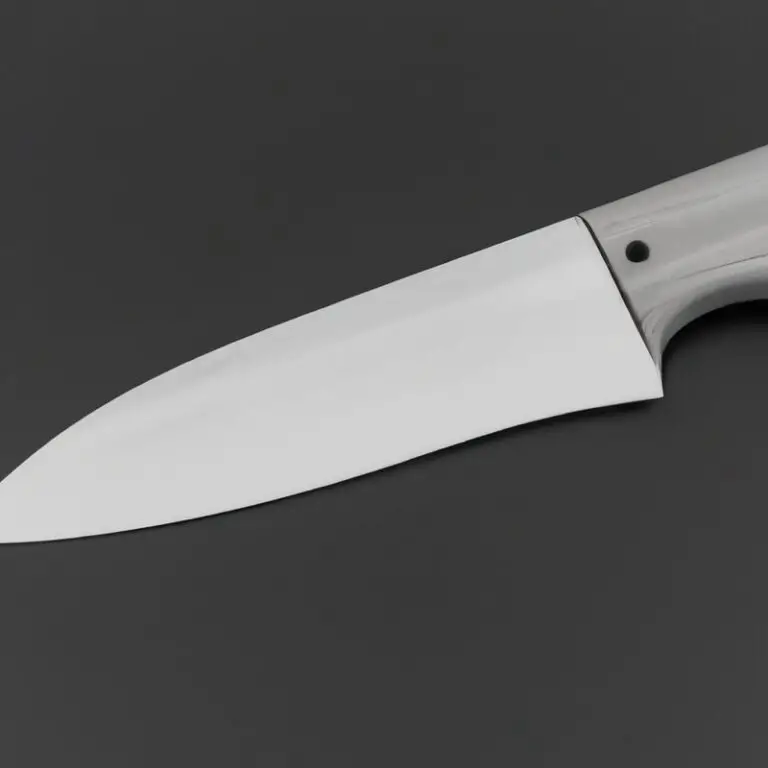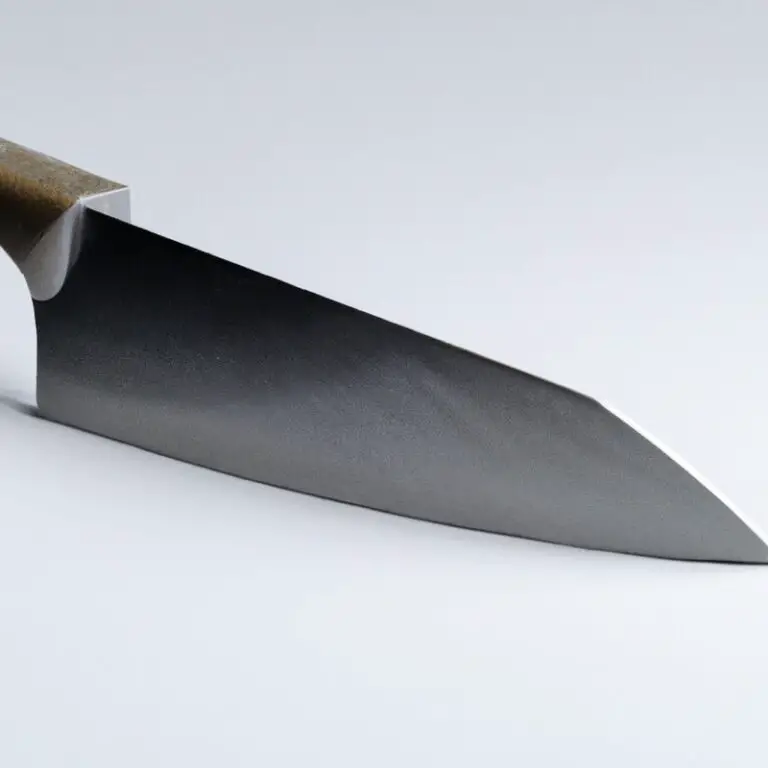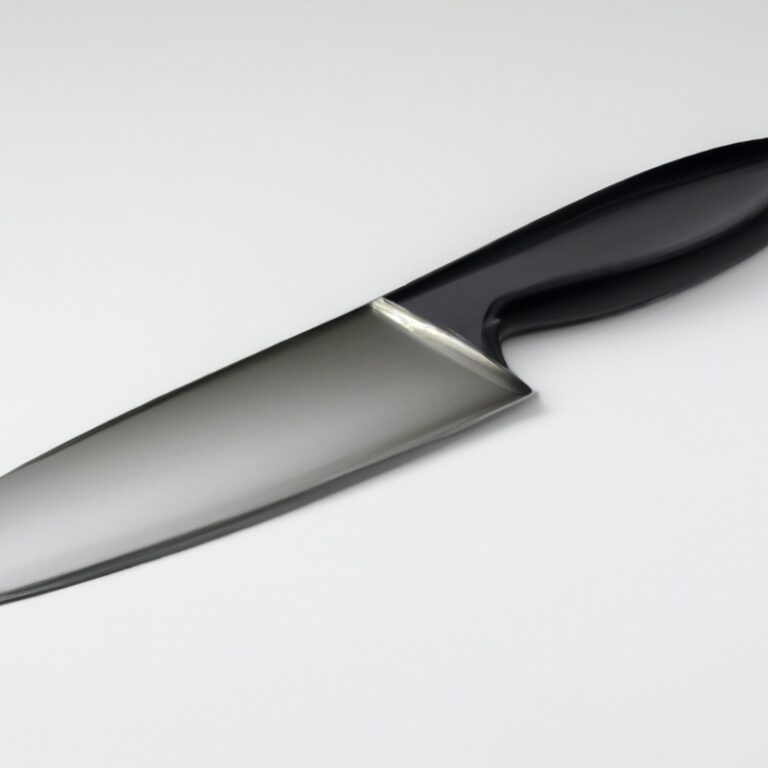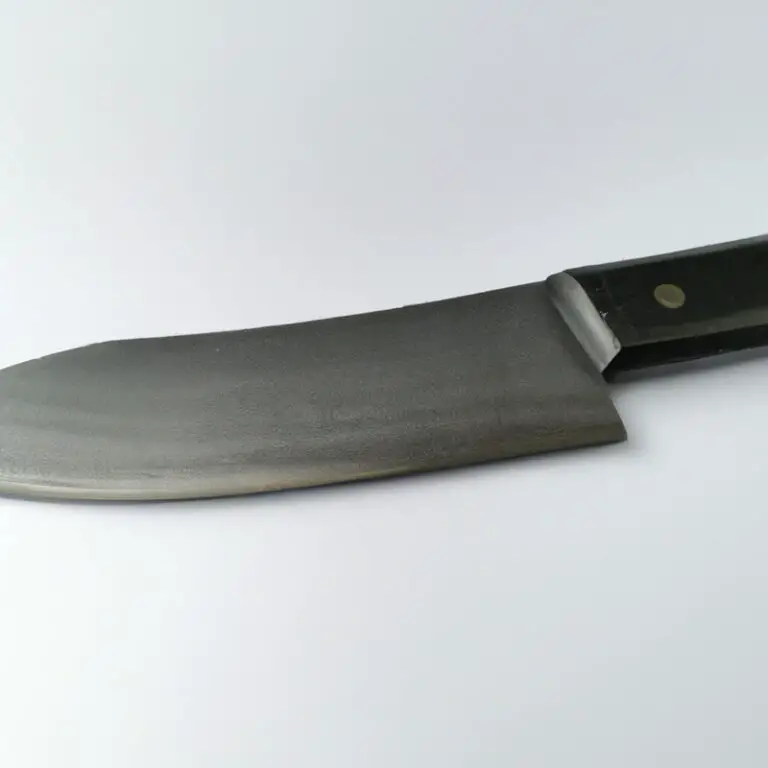What Are The Common Misconceptions About Gyuto Knives? Debunked
Key Takeaways:
- A common misconception about Gyuto knives is that they are only suitable for slicing meat when in fact they are versatile and can be used for a variety of cutting tasks.
- Another myth is that you need to be a professional chef to use a Gyuto knife, but with proper training and practice, anyone can master the techniques.
- Some people also believe that Gyuto knives are only made in Japan, but they are now produced in other countries such as Germany and the USA.
- It’s important to dispel these misconceptions and do proper research before investing in a Gyuto knife to ensure that you are getting the right tool for your needs.
Think you know everything about Gyuto knives? Think again.
Despite being a highly coveted kitchen tool, there are several rampant misconceptions surrounding these Japanese knives.
From their origin to their purpose, there are many myths that have clouded people’s perception of Gyuto knives. As a culinary expert with years of experience working with these knives, I am here to demystify these myths and provide you with a deeper understanding of Gyuto knives.
So, grab a seat and get ready to have your perceptions challenged as we dive into the common misconceptions about Gyuto knives.
Gyuto knives are some of the most versatile and popular knives in the world. However, there are many misconceptions about these knives that should be addressed. Below is a table highlighting some common misconceptions about Gyuto knives.| Myths/Misconceptions | Realities/Truths |
| Gyuto knives are only suitable for Japanese cuisine. | Gyuto knives are versatile and can be used for a variety of cuisines and dishes. |
| Gyuto knives are not as sharp as other Japanese knives. | Gyuto knives are made from high-quality steel and can be just as sharp as any other Japanese knife. |
| Gyuto knives are difficult to sharpen. | Gyuto knives are no more difficult to sharpen than any other quality knife. Proper sharpening tools and techniques are necessary. |
| Gyuto knives are only suitable for professional chefs. | Gyuto knives are suitable for home cooks as well and can greatly improve food preparation. |
| Gyuto knives are too expensive. | While some high-end Gyuto knives can be expensive, there are many affordable options available as well. |
Gyuto knives: What you need to know before buying one
Before buying a Gyuto knife, there are a few key factors to consider. Firstly, the blade material- most high-quality Gyuto knives are made of high-carbon stainless steel, which is durable and resistant to rust and corrosion.
Secondly, the blade edge- a sharp, precise edge is necessary for precise cutting, so ensure the knife has been properly sharpened and is easy to maintain.
Finally, the handle- a comfortable grip is essential for safe and effective use, so consider the material and design of the handle before making a purchase. Taking these factors into account will help ensure that you select a high-quality Gyuto knife that is well-suited to your needs.
The truth about Japanese knives and Gyuto knives
Japanese knives and Gyuto knives have gained a reputation for being the sharpest, most precise knives available, but there are some misconceptions surrounding them. Firstly, while Japanese knives are certainly renowned for their quality, there are many high-quality Western-style knives available too.
Secondly, the term “Gyuto knife” is often used interchangeably with “chef’s knife,” but there are some subtle differences.
A Gyuto knife has a thinner, lighter blade and a sharper angle than a traditional Western-style chef’s knife, making it ideal for precision work. In short, Japanese knives and Gyuto knives are excellent choices for kitchen use, but it’s important to do your research and choose the knife that best suits your needs.
Demystifying the myths surrounding Gyuto knives
There are several myths surrounding Gyuto knives that need debunking. One of the most common misconceptions is that they are only suitable for cutting meat.
However, Gyuto knives are versatile and can be used for various kitchen tasks, from slicing vegetables to filleting fish.
Another myth is that Gyuto knives are fragile and require delicate handling. While it is true that they are made with high-quality, hard steel, they are designed to withstand the rigors of daily use.
Proper maintenance and sharpening will keep them in top condition.
Some people also believe that Gyuto knives are difficult to sharpen. However, with the right tools and technique, they can be sharpened just like any other knife.
It is important to use the correct angle and to maintain a consistent pressure while sharpening.
Finally, there is a misconception that only professional chefs need a Gyuto knife. While it is true that they are a staple in many commercial kitchens, they are also an excellent addition to any home cook’s kitchen.
Their versatility and precision make them an ideal choice for anyone who values quality and efficiency in their cooking.
Gyuto knives are a valuable tool in any kitchen, and it is important to be aware of the myths surrounding them. By debunking these misconceptions, you can make an informed decision when choosing a knife that will meet your needs and enhance your cooking experience.
Common myths about Gyuto knives that need debunking
There are several common myths about Gyuto knives that have been perpetuated for quite some time. It’s important to debunk these myths to be better informed before purchasing or using a Gyuto knife.
Myth 1: Gyuto knives are only for slicing sashimi and sushi Fact: While Gyuto knives are traditionally used for slicing proteins thinly, they can also be used for a variety of other ingredients, including fruits, vegetables, and meats.
Myth 2: Gyuto knives are only suitable for professional chefs Fact: Anyone can use a Gyuto knife, regardless of their level of experience in the kitchen. Choosing the right type of Gyuto knife will ensure maximum performance.
Myth 3: Gyuto knives are too delicate and can easily break or chip Fact: Gyuto knives are made using high-quality materials and can withstand frequent usage.
Proper care and maintenance will ensure their longevity. Myth 4: Gyuto knives require special sharpening techniques Fact: While it’s important to sharpen a Gyuto knife correctly, it’s not a difficult task.
There are several sharpening methods available, including using a whetstone or honing rod.
Myth 5: All Gyuto knives are the same Fact: There are several different types of Gyuto knives available, each with unique features and characteristics. Understanding these differences will ensure you get the right knife for your needs.
By debunking these common myths about Gyuto knives, you will be better equipped to make an informed decision when choosing a Gyuto knife for your kitchen.
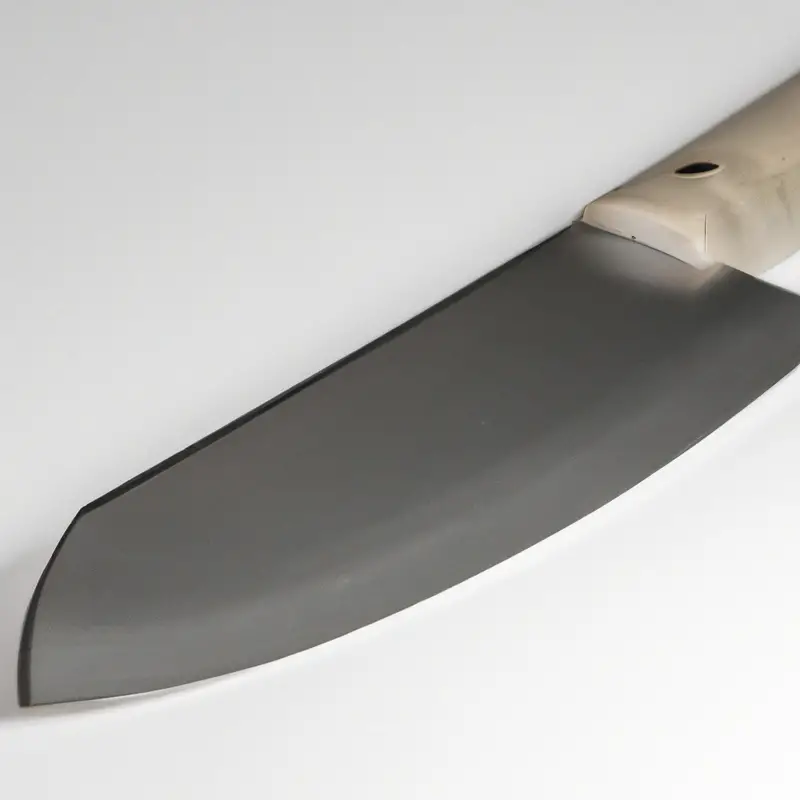
Gyuto knives: Why you shouldn’t believe everything you’ve heard
Gyuto knives, like any other product, have a number of misconceptions surrounding them. One of the most common is that they are extremely fragile, making them unsuitable for heavy-duty cutting.
However, this is not entirely true.
While it is true that Gyuto knives have thin blades, they are made of high-quality materials that make them durable enough to handle tougher cutting tasks. In fact, their razor-sharp edges can cut through meat, fish, and vegetables with ease.
Another common myth is that Gyuto knives are difficult to sharpen.
However, this is also untrue. These knives can be sharpened with ease using a sharpening stone or honing rod.
With a little bit of practice, you can sharpen your Gyuto knife to perfection.
Lastly, some people believe that Gyuto knives are only suitable for experienced chefs. However, this is not the case either.
Although they are commonly used in professional kitchens, they are also ideal for home cooks who are looking for high-quality knives that can help them prepare their meals more efficiently.
Therefore, don’t believe everything you’ve heard about Gyuto knives. They are strong, easy to sharpen, and suitable for both professional chefs and home cooks.
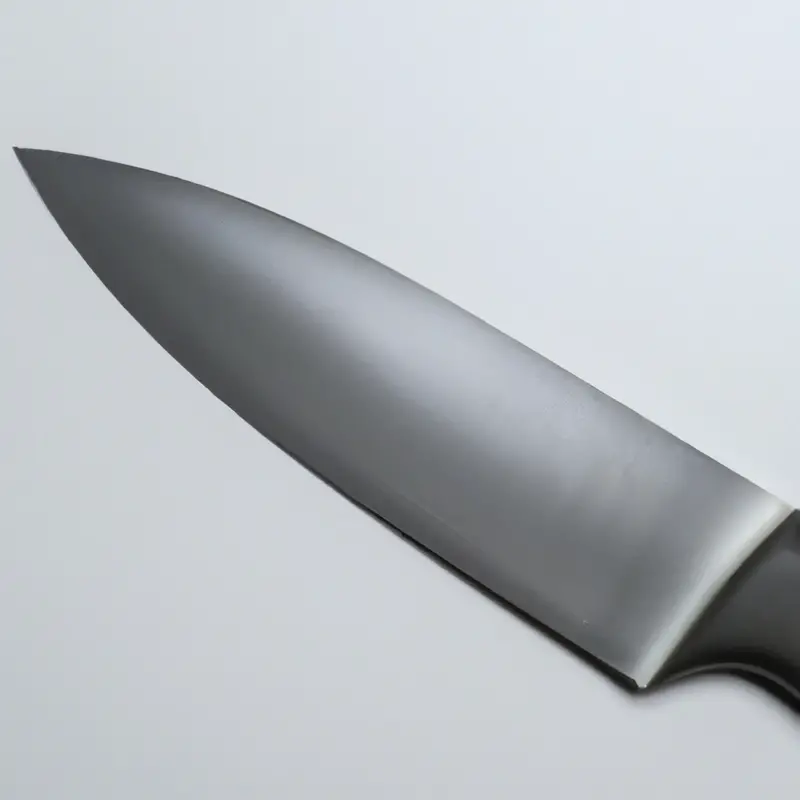
Understanding the differences between Gyuto knives and Western-style knives
Gyuto knives and Western-style knives are both used for cutting and slicing, but they differ in their blade shape, weight, and blade angle. Gyuto knives have a thinner, sharper, and longer blade, usually around 8-12 inches in length.
They have a sharper angle, around 15-18 degrees, which makes them ideal for precise slicing and cutting through tough meats or vegetables.
On the other hand, Western-style knives have a thicker blade, usually around 6-8 inches in length, with a wider angle at around 20-22 degrees. They are heavier and more durable, with a thicker spine and a curved blade, making them perfect for chopping and cutting through dense ingredients.
Another significant difference between the two is the handle.
Gyuto knives have a traditional Japanese handle made of wood or bamboo, while Western-style knives have a full tang handle made of metal and covered with plastic or wood. Ultimately, the choice between a Gyuto knife and a Western-style knife comes down to personal preference and the tasks you need to perform in the kitchen.
However, Gyuto knives are excellent for precise cuts and slicing, while Western-style knives are ideal for chopping and heavy-duty kitchen work.
The science behind why Gyuto knives are a must-have in your kitchen
Gyuto knives have a unique design that makes them highly efficient cutting tools. The thin, lightweight blade and sharp edge enable precision cutting, resulting in cleaner cuts and less damage to the food’s structure.
The blade’s curve also allows for a smooth rocking motion, making it easier to chop and slice food quickly and evenly.
Moreover, the steel used to make Gyuto knives undergoes a special hardening process that enhances its durability and sharpness. This process increases the blade’s carbon content and creates a harder steel that can hold a sharper edge longer.
The construction of Gyuto knives, combined with the steel’s hardness and sharpness, makes them ideal for a wide variety of kitchen tasks.
Whether you are chopping vegetables, slicing meat, or filleting fish, a Gyuto knife can handle the job with ease and precision. Therefore, if you are serious about cooking and want a high-quality, versatile knife that can handle any task, a Gyuto knife is a must-have in your kitchen.
Final Verdict
We have explored and busted some of the most common myths surrounding Gyuto knives. We hope that this article has provided you with a better understanding of what a Gyuto knife is, how it differs from Western-style knives, and why it is a must-have in your kitchen.
As with any tool, it is essential to educate oneself thoroughly before making a purchase decision.
With that said, we encourage you to discard any false beliefs and trust the facts when it comes to Gyuto knives. Remember, they are a versatile and reliable tool that can transform your cooking experience.
So go ahead, invest in a good quality Gyuto knife, and enjoy the precision and efficiency it brings to your kitchen.
